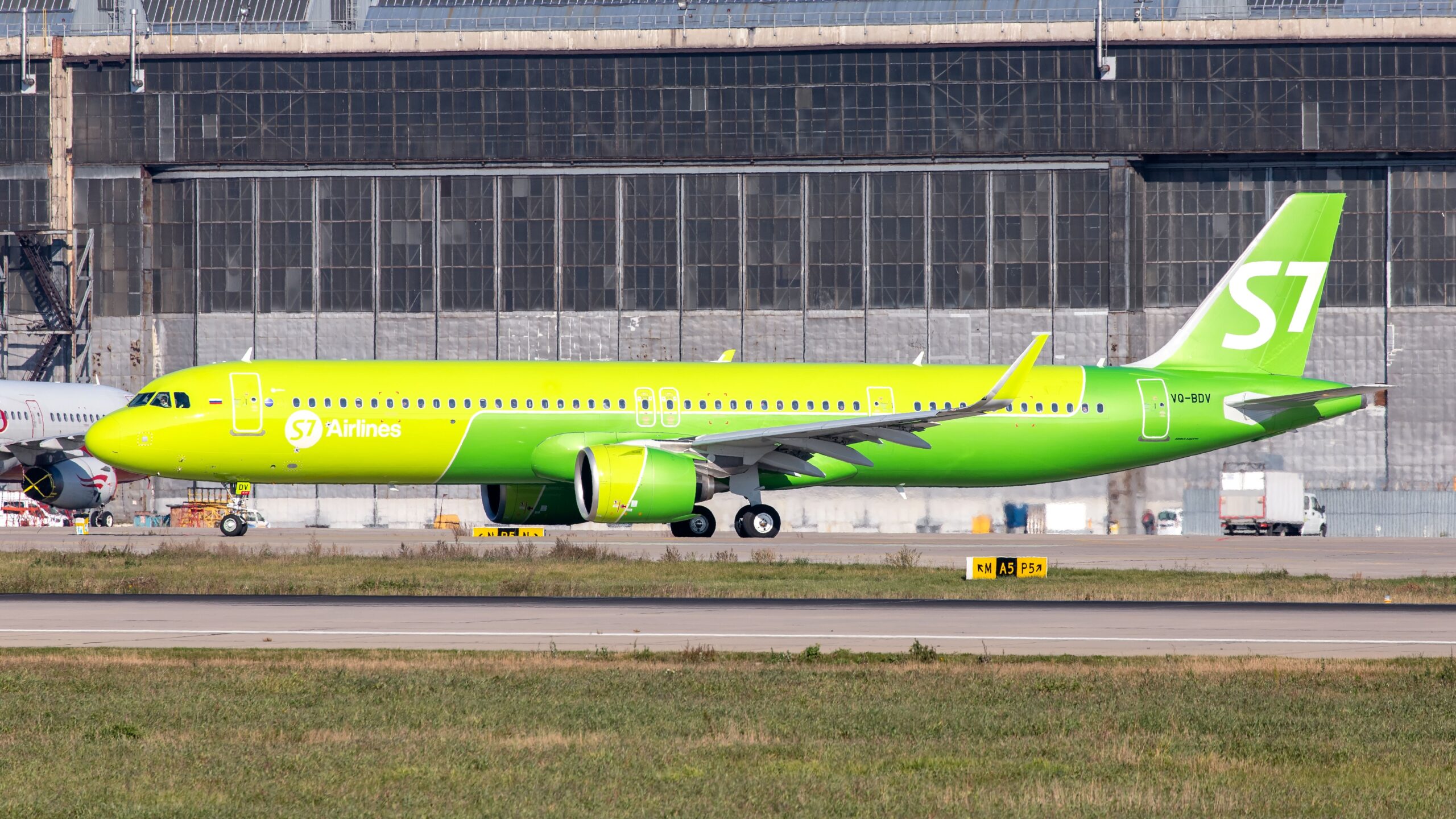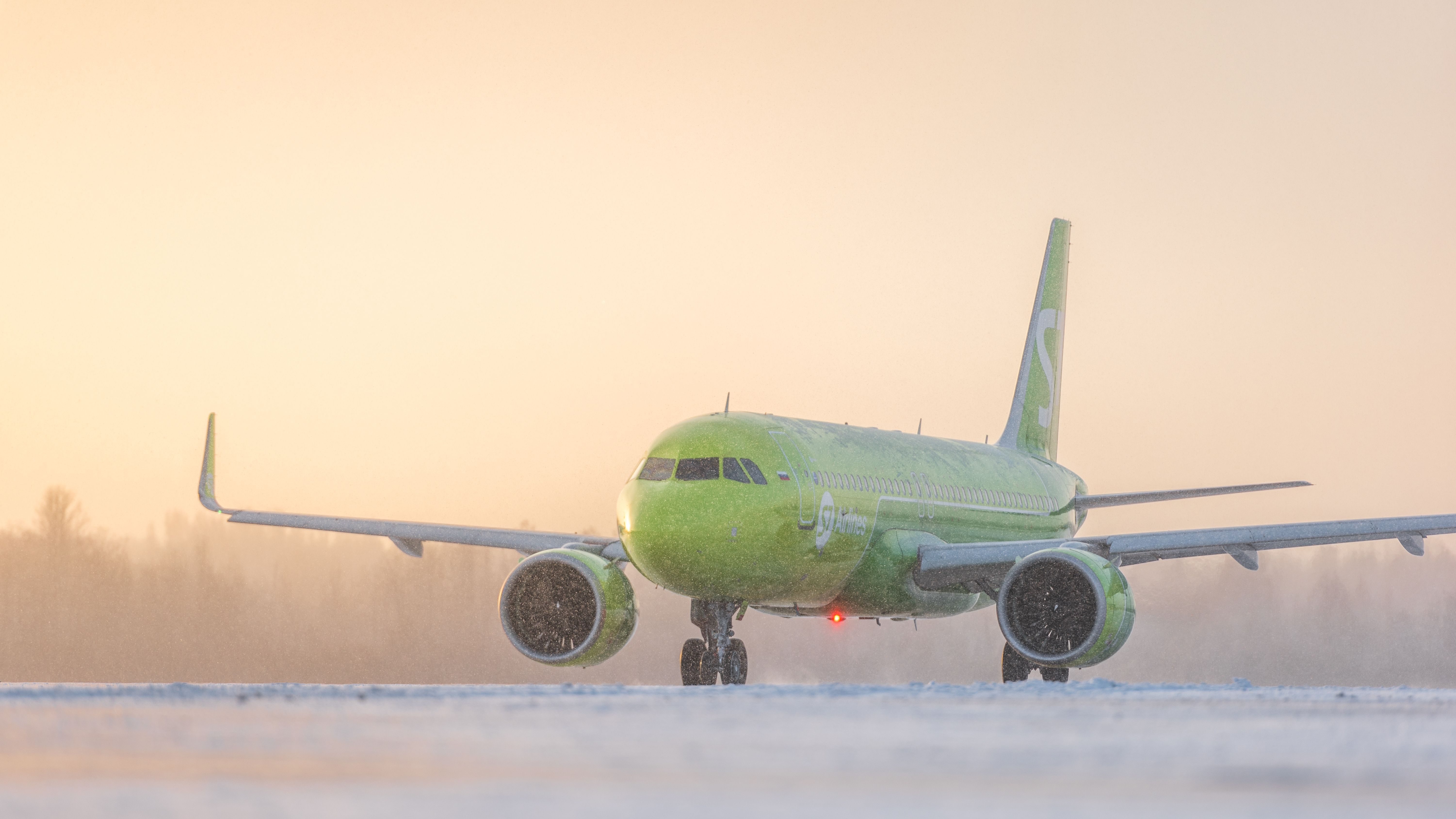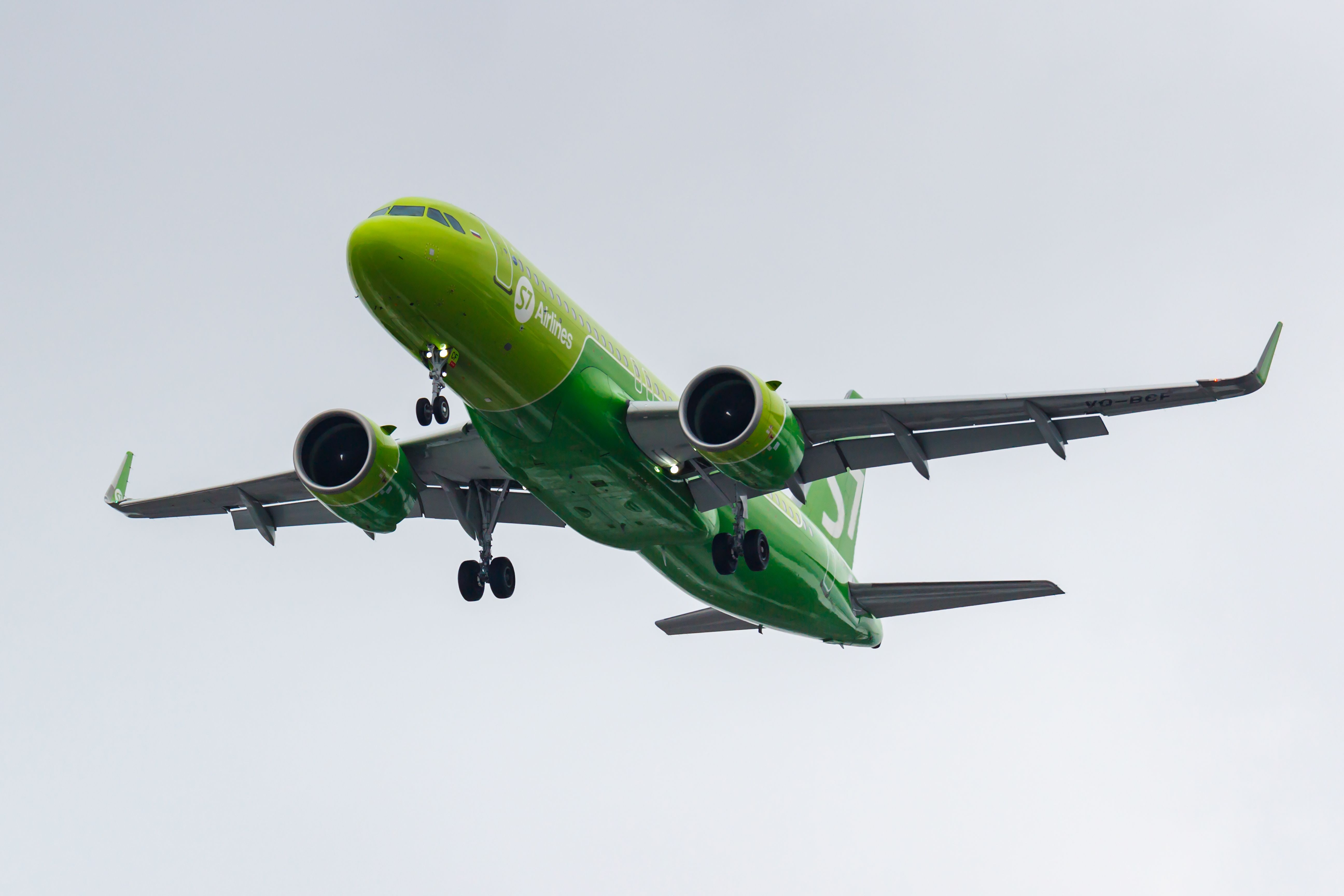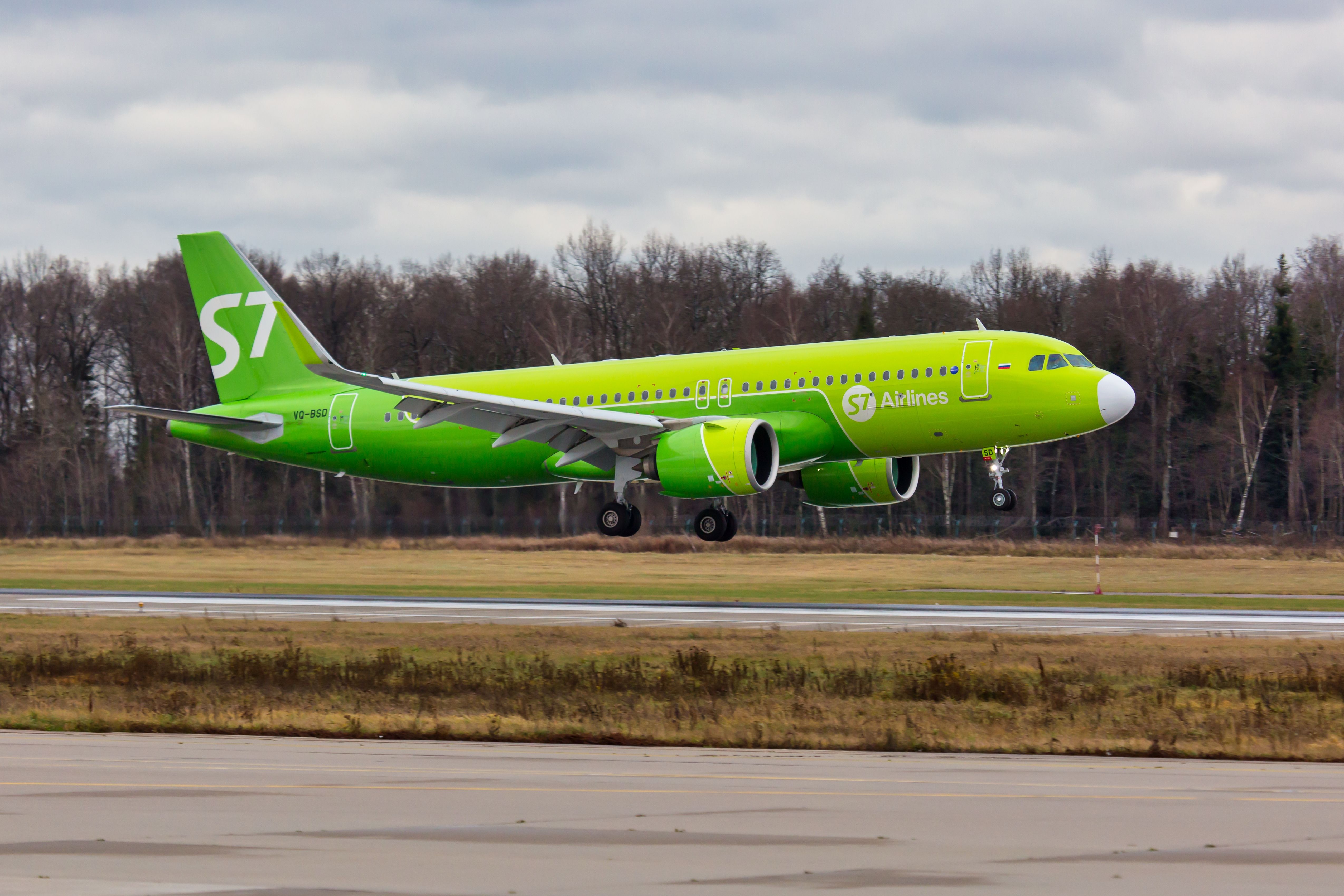Summary
- S7 Airlines could ground its Airbus A320neo family aircraft due to the sanctions making it harder to maintain the Pratt & Whitney PW1100G engine powering its A320neo and A321neos.
- The head of the Russian Federal Air Transport Agency warned that the carrier’s decision to ground its A320neo family aircraft fleet could impact the whole Russian aviation system.
- Reports have indicated that the airline has also been seeking approval to export its A320neo and A321neos outside of Russia.
According to Dmitry Yadrov, the head of the Russian Federal Air Transport Agency (Федеральное агентство воздушного транспорта, FAVT, or Rosaviatsiya), S7 Airlines will be forced to ground its Airbus A320neo family aircraft due to the mandatory engine repairs of the PW1100G, which has become increasingly difficult due to the sanctions imposed on Russia for its invasion of Ukraine.
Affecting the whole Russian aviation industry
Yadrov told reporters that Russia’s passenger air traffic could fall by almost 7% year-on-year (YoY) to 98.1 million passengers, according to reports by the Russian news agency TASS. The head of Rosaviatsiya detailed that while the number was planned and the number of passengers during the first five months of the year has grown by 8% YoY, the summer could determine the final number of passengers transported by Russian airlines.
Photo: Alexandr Zimovskoy | Shutterstock
However, Yadrov emphasized that a lot will depend on what S7 Airlines decides to do with its A320neo family aircraft that are equipped with the Pratt & Whitney PW1100G engines. The executive stated that they carry a significant volume of passengers, but they now require maintenance, something that airlines around the world have complained about, Yadrov added.
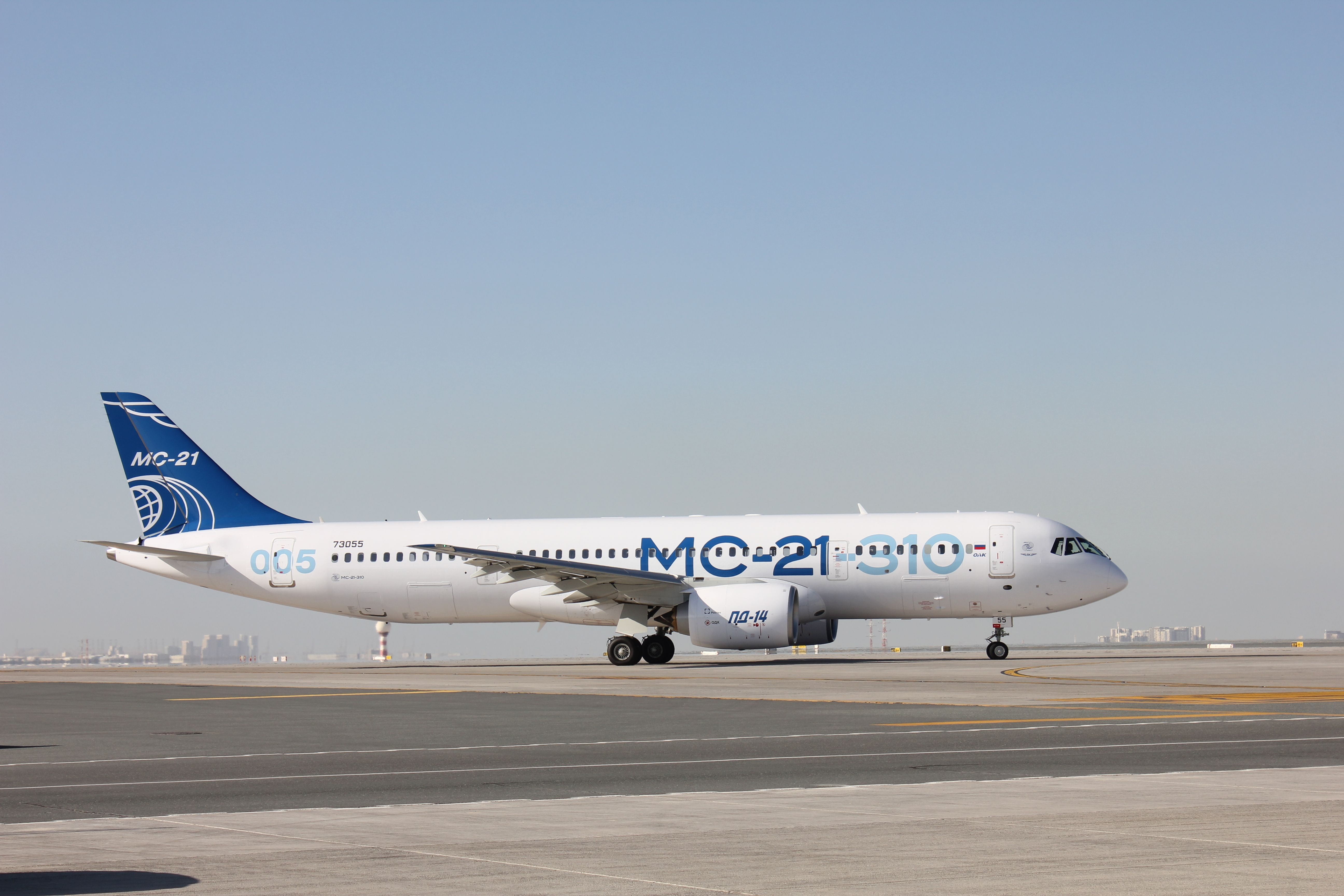
Related
Overweight & Late: Russia’s MC-21 Expected To Be 6 Tons Heavier
The aircraft will have significantly reduced performance when eventually enters production.
Circumventing sanctions with the help of Iran
In addition, sanctions have made it impossible to repair and service these engines. In a separate report by Kommersant, S7 Airlines is planning to reduce its upcoming winter schedule by between 10% and 15% due to aircraft maintenance, with a Rosaviatsiya source telling the Russian publication about S7’s difficulties maintaining the PW1100G.
Kommersant also cited another source, which told the outlet that servicing the Pratt & Whitney engines could not be done either at S7 Technics, S7 Airlines’ maintenance, repair, and overhaul (MRO) subsidiary, or in Iran, which traditionally deals with older-generation aircraft and engines.
Photo: Vladimir Zhupanenko | Shutterstock
Furthermore, another Rosaviatsiya insider told the publication that S7 Airlines has sought ways how to get rid of the Airbus A320neo family aircraft, with the carrier potentially looking for approval from the Ministry of Transport of the Russian Federation (Министерство транспорта Российской Федерации, Минтранс России) to export the A320neo family aircraft abroad, with at least 22 jets being involved in the ordeal.
According to ch-aviation data, S7 Airlines has 101 aircraft in its fleet, with the airline operating 31 A320neo (15 inactive) and eight A321neo (all inactive) aircraft. However, while the ownership of 26 A320neo family aircraft was unknown, 13 were owned by S7 Airlines, meaning that potentially, no foreign lessors are affected by the airline’s woes with its A320neo family aircraft.
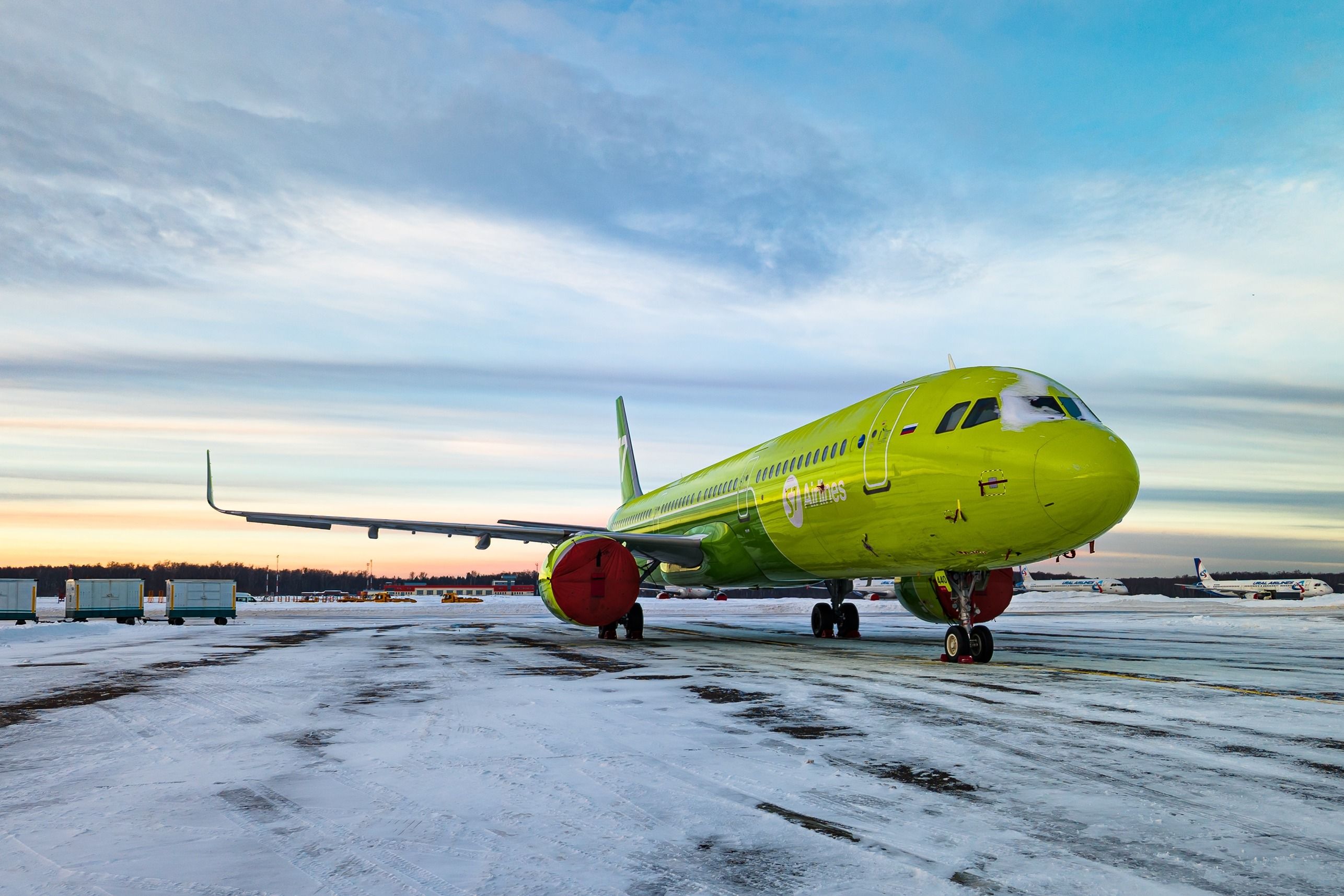
Related
Russia’s S7 Cuts Moscow Crew By 15% Due To Aircraft Groundings
Some of S7 Airlines’ former crew members have already been hired by Aeroflot and its low-cost arm, Pobeda.
Expanding its fleet
However, in May, S7 Airlines announced that it had added three Airbus A321 aircraft to its fleet, beginning the flights with the three jets during the upcoming summer season. The three A321s, registered as RA-73310, RA-73689, and RA-73693 are owned by the State Transport Leasing Company (Государственная транспортная лизинговая компания, GTLK).
Photo: Skycolors | Shutterstock
Before S7 Airlines took ownership of the trio, another Russian airline, Yamal Airlines, had operated the A321s. Two, namely RA-73310 (delivered in May 2003) and RA-73689 (delivered in April 2003), were previously operated by Lebanon-based Middle East Airlines, while Airbus originally handed over RA-73693 (delivered in November 2004) to Aeroflot.
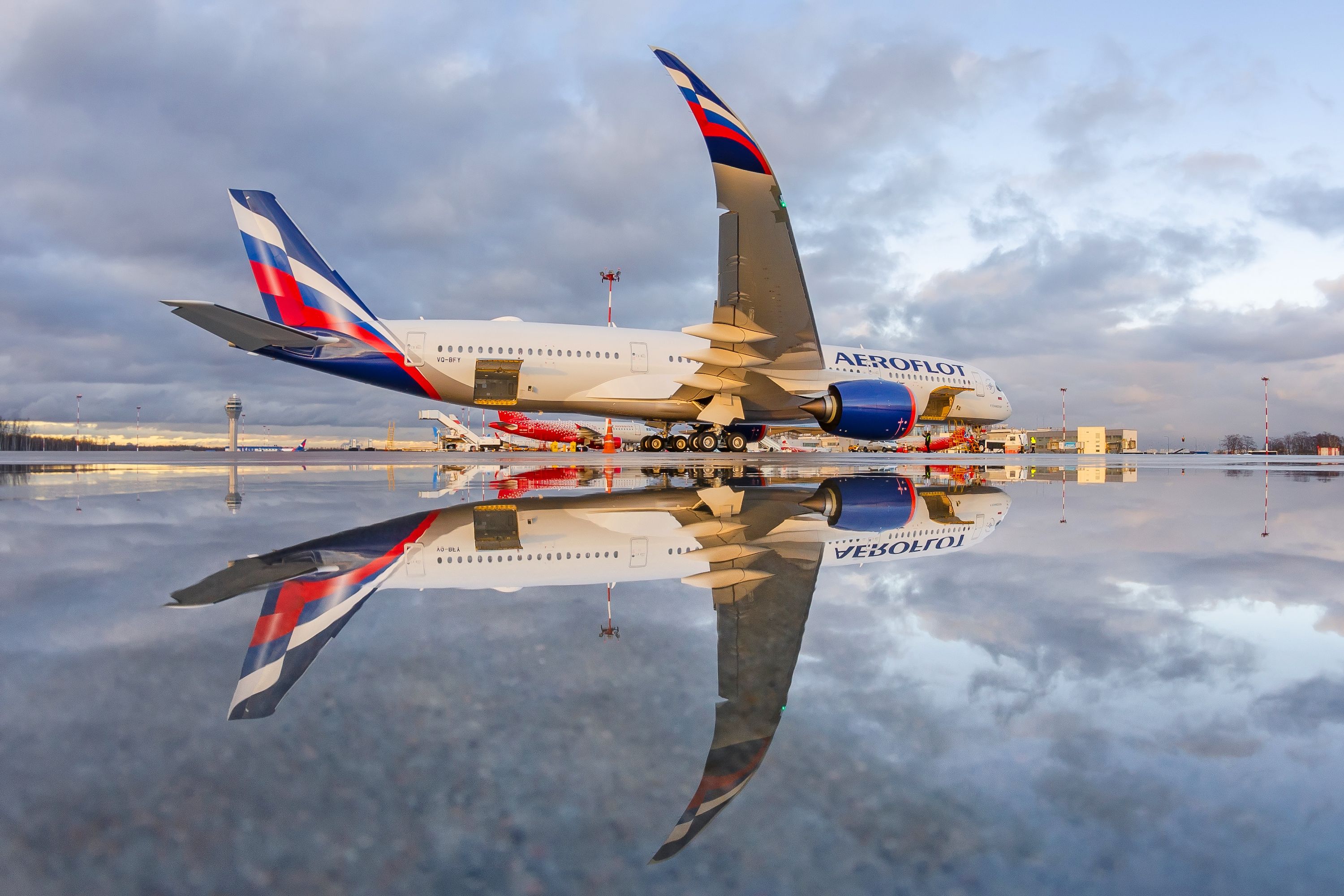
Related
Shrinking Under Sanctions? The Aeroflot Fleet In 2024
With a fleet now fully comprised of Airbus and Boeing aircraft, Aeroflot is doing its best to keep operations going amid sanctions on spare parts.

